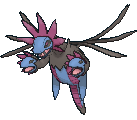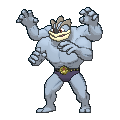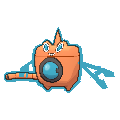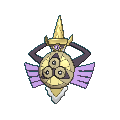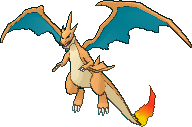"What's the play at regionals?"
I've gotten this question way more times than I wish to answer it, but I truly have never really had an answer for anyone. If you read my last post, it should be pretty apparent that even
I didn't know how the heck I won one regional, let alone four, over the past three years, nor did I know why I brought the teams I did. It bothered me- I wanted to figure out what I was doing and why I was so successful at doing whatever it was.
It's come to me little by little, and I'm still no expert on how to do this. There's no mathematical formula or sure-fire way of going into a huge tournament and coming out on top, but there's some things to keep in mind when preparing.
There are a
lot of things that go into going deep at an event such as a regional. There are too many things to talk about in one blog post, and I'm sure a lot of them couldn't even be explained or quantified if I tried to understand and make sense of them. You can't really explain some of the luck that goes into the game to a T, and the same goes for a lot of the minor details that can swing a close game in a best-of-three series.
Something I do think is very important, especially during this 2014 format, is being able to choose the correct team to bring to the event. Now, you can bring the correct team, play like absolute garbage, and still do horribly. That's a facet of the game that I'd rather just assume, for the sake of this writeup, is something that you've already figured out well enough. Obviously no one is going to be able to play flawlessly all day, but there are certain risks a good player should be correctly analyzing and either taking or mitigating and not having to think twice about. The players who consistently do well at tournaments are typically players who have this part of the game nailed down- they will never end up "handing you a match". You have to earn your wins versus these players by making some excellent plays and trading blows in between. The rest of this writeup is assuming the player is not going to have a habit of making these mistakes (we all make embarrassing mistakes from time to time, but I don't know how to explain that I don't care about this part of the game in relation to the team selection. It's irrelevant to what I'm about to go on about as far the point stands.)
Most of the time before a regional, you can observe what the metagame has shifted to. It's relatively easy to see what the majority of the top players are going to be using. However, while preparing, most players often fall in love with a certain team or concept that they've been working on for the last month or so. They then (usually a week or two before an event) realize that there is a better way to approach the metagame that's much less comfortable for them, but typically wins just as much because it has a more direct counter to more teams being used. (Sidenote: anyone with one month of practice with a team is going to understand tendencies, strengths, and weaknesses of that team way better than using a team for two or three days- there are some flaws that practice can only cure, comfort and "muscle memory" is one of those for most of us in the community who aren't literal geniuses.)
So you have two choices: you either stick to your guns or you disarm the opponents. You can usually reasonably do both pretty well and both teams will have certain comfort zones in them and certain meta-calls in them naturally, but typically one team (we'll call this team A) is directly in your comfort zone and has a few key weaknesses while the other team (which we'll call team B) has much less of a comforting feel but has less overall weaknesses and more good matchups. If your team magically falls into a comfort-zone meta-call, well, good job, you're extremely fortunate and you should be all set. Typically this doesn't happen though, and typically you have a decision to make on a team. But which is the correct one?
Well, there isn't a set method to make the correct choice. This is something you have to analyze and choose for your own situation, and it varies from person to person and from metagame to metagame. Each situation is different, and there is usually a right or a wrong choice, but there are so many factors that go into that choice that it's hard to make a really good "guide" for this. But some questions you can ask yourself to help you make the right choice:
- What is the single most-used Pokemon in the format right now? Do you have a positive or at least above-neutral matchup against it and the typical teams it's on with Team A?
- What are the top 5 most-used Pokemon in the format right now? Do you have at least two ways to very effectively deal with each of them on your team? Do any of them give you major issues? Do any of their known combinations give you any issues?
- Are there any major archetypes in the format that could give Team A serious issues? Do you have any way at all to gunsling a win if you pull one of these matchups? How likely are these matchups? Are they worth worrying about?
- In a vacuum, can you win over 50% of your matches against the majority of teams the top players are using? Do you have a plan for best-of-three given that you don't know their items, just their six Pokemon?
- Based on what you answered about the metagame (not in relation to your team), what do you think the natural counters to the metagame are going to be from people not currently set on a team yet? Do these natural counters end up giving Team A a hard time?
- Do you think your Team B is going to be able to efficiently deal with all of the threats in the metagame? Will the holes this team covers up and the positive matchups it creates be enough to offset the potential extra time you'll spend on moves / slightly increased risk of timing out or not being able to make plays you want to?
- Do you think Team B will be able to stand a chance against other Team Bs based on what you think other people may end up using as a reactive team? This is much less important, but worth taking a quick look at.
I made some Tweets today about the counter-teaming side of things. I guess I sounded like I didn't believe that being "original" was effective. I didn't mean that at all- it can be, and people are more comfortable with concepts that they have had time to develop without the metagame in sight are not wrong for using them. I've done the same before (Jellicent team at Fort Wayne 2013, Top/Moth/Mamo/Volc/Zapdos/Amoonguss at Madison 2013) and have had success. It's just that sometimes, there's a metagame call so obvious that it's silly to not try your Team B because seemingly everyone and their mother has resorted to using one specific archetype, and Team A definitely isn't going to be able to give you as many chances to win versus that archetype as Team B is. It varies from case to case as noted above, but I think Houston regionals today were a very good example of both cases showing up and someone's Team B having the tools to pull off the win.
What's the example? Here:
1st Place - Cedric Bernier (Talon)
Charizard-Y / Mawile / Tyranitar / Ludicolo / Garchomp / Salamence
2nd Place - Collin Heier (TheBattleRoom)
Mawile / Gothitelle / Ludicolo / Hydreigon / Zapdos / Politoed
3rd Place - Lee Camacho
Kangaskhan / Lucario / Kingdra / Politoed / Gardevoir / Talonflame
4th Place - Aaron Zheng (Cybertron)
Mawile / Gothitelle / Ludicolo / Salamence / Rotom-H / Hariyama
Aaron and Collin ran what was working and what they were comfortable with, and it ended up paying huge dividends for them. Aaron used the exact same team from a week before, and it ended up being a great call here- either people had still not adjusted to beat Goth/Maw/Ludi/Rotom-H, or he had a much better idea on how to exploit his matchups because of his experience with his team (or maybe a bit of both). Either way, credit goes to him for putting his team out there and then sticking to his guns again. Same goes for Collin, an avid Hydreigon + Mawile + Trick Room fan, who probably had worried a bit that people would try to play a hard counter on that type of thing. Again, his experience with the team likely helped him pull out the extra game or two he needed to get to the finals. Aaron and Collin are excellent players regardless of what teams they bring, but their choices to stick with their respective Team As probably was in their favor due to how their team matched up to the metagame and how comfortable they were with it.
Not too much here to talk about on this topic with Lee's team as I don't know how he came up with it or what he was using, but I think that by looking at the six it makes sense that he was able to do well with Kangaskhan in a Mawile-heavy metagame.
If Cedric had to play Aaron in top four instead of Lee, I think based on his matchup he'd likely still be the champion anyways. He had what I think is one of the very best checks to Mawile / Gothitelle / Ludicolo in Charizard-Y / Ludicolo, and he had a way to take out both variants of rain, Kangaskhan-centered and Mawile-centered (Mawile + Tyranitar + Salamence and Charizard + Ludicolo + Tyranitar, respectively.) The team was one of the best meta checks I've seen in this format, and I think Cedric showed that he's more than capable of piloting such a team, knocking off Collin, who had an incredibly solid team, in the finals.
This doesn't necessarily imply that using Team B gives you the best chance to win regionals, but today, the meta call was the play, and Cedric made one heck of a meta call. He had answers to all other three opponents in the top four, and it's no surprise he came out on top based on the great matchups he had. Aaron and Collin showed that sticking to Team A and using your comfort zone and familiarity to your advantage as well as having a team that does do decently well in the metagame is still a really strong and consistent option, though.
So what's the play at regionals next weekend? I don't know, but hopefully this helped!




